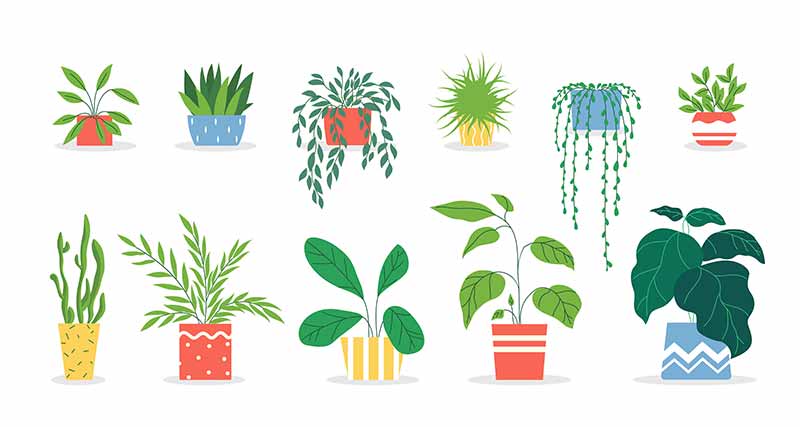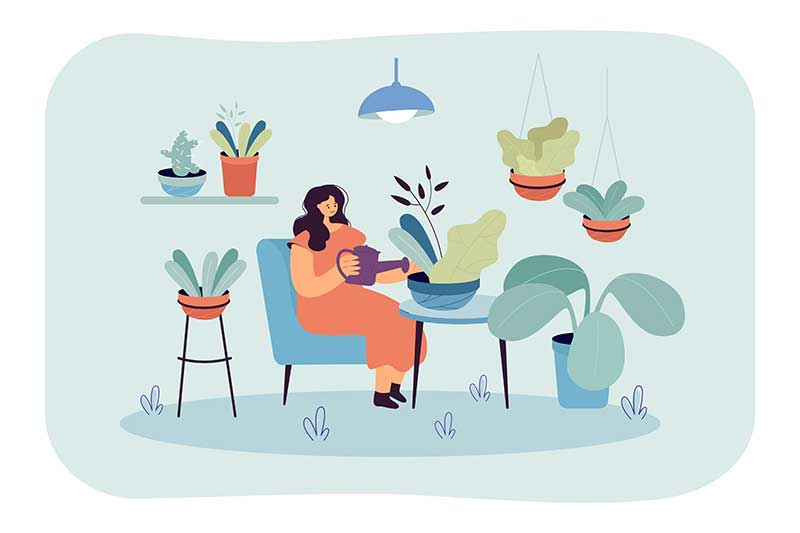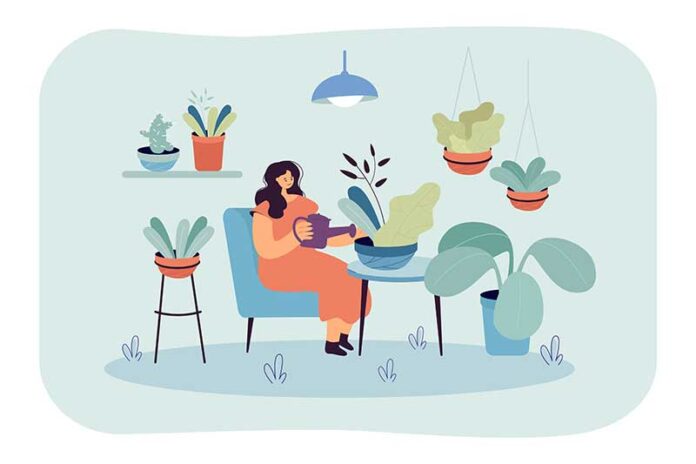Namaskar Desi Gardeners! Is plant care easy? Do houseplants need high maintenance? Let us bust the myths from the facts in this short read.
Most important information on Plant care
Plant care is an art for the horticulturists, a necessity for the farmers and a hobby for the desi gardeners like us.
As most of us do not have the energy or time we would want to spend on plants, here are some very simple ways you can keep your plants healthy.
- Plants grow easily. Give them the right food, water and sunlight and they will be fine. See around you. Everywhere in nature you will see small plants growing here and there. These are automatically programmed to do so. Mother Nature takes care of them all. But when ‘unnatural’ factors come in or pests attack, plants get sick.
- What makes a plant weak? It is basically simple. Over or less watering. Too less or too much fertilizer. Too much sunlight or too less. It depends on the type of plant.
- Pests and diseases are the plant’s biggest enemies. A weekly or monthly spray is a must.
- With the right food, water and protection, your plants will grow healthy and strong and will lots of flowers and fruits.

Tips To Start Organic Farming At Home
So what should we do for healthy plants –
- First of all, use good and clean potting soil. Do not simply use soil from a field. It contains germs and potential diseases. You should prepare the soil by adding various materials. You can know all about different kinds of potting soil here – . You can also use readymade potting soil like this one.
- Get good quality plants. It is easier to grow a plant using saplings than by germinating from seeds. Whether you get seeds or saplings, get it of good quality.
- Water only when the topsoil is dry. Otherwise the roots may rot away and fungal diseases can attack your plants. Water on the soil, not on the leaves. Plants can easily recover from less watering but it’s very difficult to restore a wilted plant due to overwatering.
- Feed your plants with a fertilizer every 10 to 14 days. Do not fertilize in less than 7 days. Too much fertilization may ‘burn’ the plants.
- Use terracotta pots, these are the best for plants. You can also use ceramic, plastic pots and grow bags but keep a note as to when the soil is dry. Ceramic and plastic heats up faster so you have to keep an eye on it.
- You can use ceramic and plastic pots indoors.
- Make sure the pots have proper drainage holes. Any water that gets accumulated due to poor drainage will rot the roots of the plant.
- Sunlight is important. Most plants need at least 3 to 4 hours of direct sunlight. In spite of good soil and fertilizer your plant will bloom less flowers if it does not get adequate sunlight. There are few plants that survive on less sunlight, I will write a post on that.
- For indoor and outdoor plants, make sure to clean the leaves if it gets too dirty. You can wash the plants but make sure the leaves get time to dry out. In the hotter days, do not do it in the noon. Early morning is best.
Brightest Yellow Flowers to grow in an Indian Garden
- Try to use organic fertilizer like mustard cake and cow dung cakes as much as possible. However sometimes you may have to use fungicide or some other chemical if some serious disease occurs on the plant.
- Pick up any dried leaves on the pots or soil and throw it away.
- When the flowers have dried out, pinch and remove it from the plant. Regular deadheading will bring more buds.
- If your plant looks unhealthy, do not just apply anything someone tells you to. You need to identify what the issue is or ask for help from someone who knows. Just like we are affected by bacteria, virus, fungus, microorganisms and food deficiency, plants suffer the same. So the disease needs to be diagnosed before you apply the medicine.

Do not make these mistakes
- When you put a plant in a pot, keep it away from direct sunlight for a week. Once the plant is set, then bring it to full light.
- Water only in morning or evening. Never water during the day, especially on warmer days. Water on the warmed up soil damages the roots.
- Do not cut or prune the plants just any time. You can however deadhead or pinch a little here and there. For example, in the hot Indian summers the plants are already stressed and pruning will put them into more of it. Best time to prune is the rainy season.
- When applying fertilizer, either in soil or spraying on leaves, always do it in early morning or evening when the sunlight is not so strong. This will prevent from damaging the plant and putting it in stress.
- The same rule goes for any pesticide and fungicide. The best time to apply it is in the evening. If you cannot do it in the evening, then do it at dawn.
- Do not disturb your plants after sunset till sunrise unless very very So no watering, digging the soil, applying any spray or fertilizer after sunset. Plants need their ‘sleep’ too.
- Do not put too many lights or too strong lights in the garden at night. This puts the plants in stress and disturbs their day-night cycle. It also discourages frogs, crickets and other creatures in your garden which otherwise would benefit your garden. Plus, it is unnatural. Lights should be only as little as needed like lighting a passageway.
- Do not grow different kinds of plants in one pot. Although people engaged in container gardening and put different plants in combination, it is a matter of experience and knowledge. You have to know which goes with what.
View this post on Instagram





























